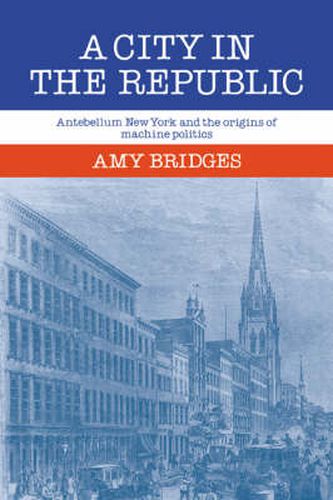Readings Newsletter
Become a Readings Member to make your shopping experience even easier.
Sign in or sign up for free!
You’re not far away from qualifying for FREE standard shipping within Australia
You’ve qualified for FREE standard shipping within Australia
The cart is loading…






This study of the emergence of machine politics in New York City during the antebellum years sheds light on the origins of a system that was the characteristic form of government in United States cities from the mid-nineteenth until well into the twentieth century. In contrast to previous explanations that have found the origins of machine politics in immigrant culture and ethnic conflict, Professor Bridges shows that central elements of the system long predated a significant immigrant presence. Her analysis focuses on two large-scale transformations in the American political economy that occurred during these years: industrialization, which reorganized the social order and provoked conflict and change; and the extension of the franchise through the abolition of property barriers, which necessitated the incorporation of ‘the many’ into political life. It was this unique combination of circumstances, the author argues, that provided the context for the development of machine politics.
$9.00 standard shipping within Australia
FREE standard shipping within Australia for orders over $100.00
Express & International shipping calculated at checkout
Stock availability can be subject to change without notice. We recommend calling the shop or contacting our online team to check availability of low stock items. Please see our Shopping Online page for more details.
This study of the emergence of machine politics in New York City during the antebellum years sheds light on the origins of a system that was the characteristic form of government in United States cities from the mid-nineteenth until well into the twentieth century. In contrast to previous explanations that have found the origins of machine politics in immigrant culture and ethnic conflict, Professor Bridges shows that central elements of the system long predated a significant immigrant presence. Her analysis focuses on two large-scale transformations in the American political economy that occurred during these years: industrialization, which reorganized the social order and provoked conflict and change; and the extension of the franchise through the abolition of property barriers, which necessitated the incorporation of ‘the many’ into political life. It was this unique combination of circumstances, the author argues, that provided the context for the development of machine politics.